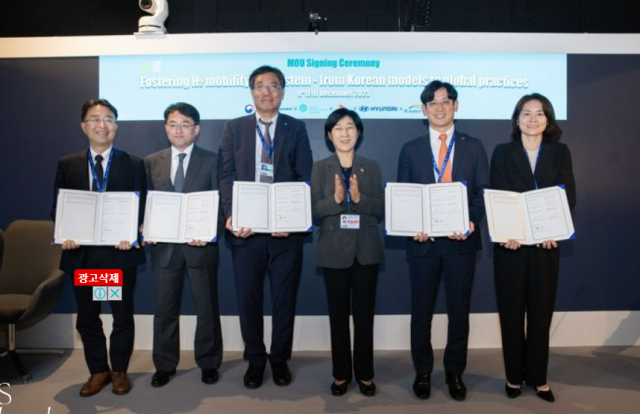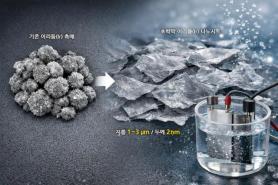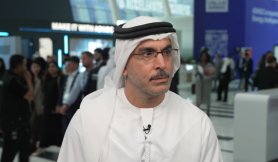
SEOUL -- Hyundai Motor forged a multilateral partnership with various organizations and SK E&S, the renewable energy wing of South Korea's SK Group, in a bid to establish a global hydrogen ecosystem.
A hydrogen ecosystem refers to infrastructure that consists of networks of hydrogen factories, logistics systems for hydrogen transport, storage systems for hydrogen, and hydrogen charging stations for commercial and ordinary hydrogen-based vehicles. When hydrogen networks of countries are interconnected, it would become a seamless renewable energy ecosystem.
Establishing a hydrogen ecosystem is challenging for countries due to the high costs of infrastructure development, the absence of standardized regulations, and the need for technological advancements to enhance competitiveness. Overcoming safety concerns, building consumer confidence, and fostering collaboration among diverse stakeholders are essential components that require coordinated efforts to successfully transition to a hydrogen-based economy.
Hyundai Motor said that the company signed a multilateral memorandum of understanding with South Korea's Ministry of Environment, Korea Water Resources Corporation (K-water), Global Green Growth Institute, and SK E&S in the United Arab Emirates where the 28th United Nations Climate Change Conference of the Parties (COP28) is being held.
Through the cooperation agreement, related companies and organizations will work together to share South Korea's example cases of hydrogen ecosystem construction with the international community. Their goal is to rapidly accelerate the growth of the global hydrogen ecosystem and counteract climate change through a global-scale project.
Hyundai Motor will promote the benefits of the resources circulation-type hydrogen production model to the world and accelerate the global expansion of the company's hydrogen-based businesses. The Ministry of Environment plans to share examples of hydrogen vehicle deployment and charging infrastructure development, while K-water will share its know-how and experience in the production and utilization of hydrogen using hydropower, and SK E&S will provide examples of liquefied hydrogen production and utilization. The example cases of successful utilization and commercialization of hydrogen technologies will be provided to international organizations for publication in reports.
"The resources circulation-type hydrogen production model is an already commercialized eco-friendly hydrogen production method in South Korea. Through this agreement, we expect to contribute to the expansion of the global resources circulation-type economy within the international hydrogen society by unfolding Waste-to-Hydrogen projects," a Hyundai Motor official said in a statement on December 11.
Copyright ⓒ Aju Press All rights reserved.




